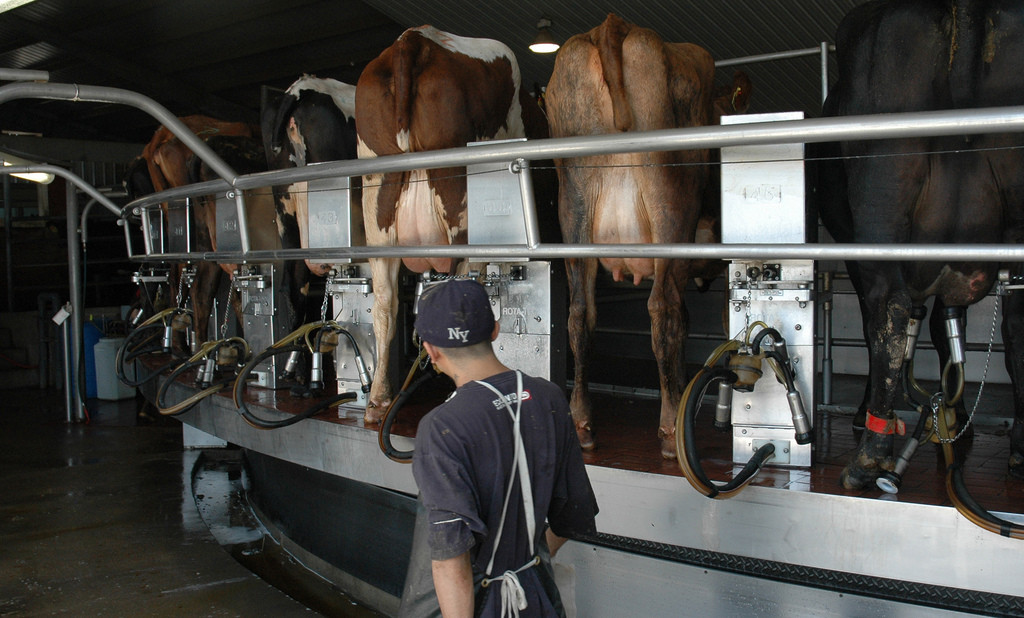Recently, I did a three-part series for Dairy Herd Management magazine discussing avoiding and surviving undercover video investigations on agriculture operations. Particularly in light of the Idaho “ag gag” statute being stricken as unconstitutional, this is an important and timely issue. We will be sharing the articles over the next couple of weeks and will address hiring practices, training procedures, and what to do if a crisis does occur.
Importantly, an initial disclaimer. I, along with the vast majority of folks involved in production agriculture am adamantly against animal abuse. Having grown up on my family’s own farm and ranch, I know first-hand the time, effort, and care that most producers put into their animals. Those who abuse animals should be punished, no question. This series is not aimed at helping to hide animal abuse. It is, instead, aimed at helping producers avoid the dangers to their operations, animals, family, and employees caused by trespassing, fraud, and deceit often used in undercover video investigations. With that, on with the article.
Initially, we will focus on hiring practices to avoid hiring an animal rights activist who seeks to film undercover videos on a farm, ranch, or other operation. Here are some key pointers:
1. Google the employee’s name.
It may seem like a simple item to include on a list of hiring practices, but it can be extremely effective. Several farmers subject to undercover animal rights investigations admit that if they had taken the time to run an Internet search before hiring the employee, the entire situation likely could have been avoided, since the search would have shown connections between the employee and animal rights organizations.
2. Look for a social media presence by the employee.
This, too, seems like a simple step, but it is amazing the information people share on social media. Check to see if the applicant has a Facebook page, a blog, a Twitter or Instagram account. Such checks are easy and free, and could help avoid hiring someone seeking to cause problems.
3. Confirm references are legitimate and contact each of them.
It is important for employers to contact references for a potential job applicant to determine if they are, in fact, references. Sometimes, activists list fake references based on the assumption the employer will never make these phone calls. Additionally, activists may use false references. For example, an applicant might list prior employment at a certain company, but then list a roommate as being his/her supervisor, providing the roommate’s phone number. In order to catch an applicant in this type of situation, employers should research each company listed on a reference list, comparing phone numbers given with those available publicly for the company.
4. Complete a background check.
Employers should consider running a background check on job applicants. Importantly, the employer must comply with the Fair Credit Reporting Act and all state laws related to background checks for employment purposes. To ensure compliance with the laws in a specific state, seek legal counsel from an attorney licensed in your jurisdiction.
5. Seek specific information in the job application.
Seek information including a list of all prior names and aliases, and any association or affiliation with animal rights groups.
6. Require signature under penalty of perjury.
Require all applicants to sign their completed application and state, under penalty of perjury, that all information is true and accurate to the best of their knowledge. This may allow perjury charges to be pursued if it turns out later that false information was supplied.
7. Beware of common warning signs.
There are numerous commonalities among activists seeking farm employment with an ultimate motive of obtaining undercover video footage. Although each of these signs could be innocent, employers should be aware of common warning signs: (1) seeking employment below the employee’s skill level; (2) previous jobs are wholly out of character with employment being sought; (3) volunteering to work for no pay; (4) seeking short-term work; (5) providing a newly obtained driver’s license; (6) seeking jobs because they have “always wanted to see how something was done”.
In conclusion, there are numerous practices an operator should take to avoid hiring an animal rights activist with ulterior motives. It is certainly easier to put in more time, effort and expense on the front end than to recover from an undercover video once it has been released. Additionally, because there are numerous state and federal laws related to employment, farmers should contact a licensed attorney in their jurisdiction to ensure all hiring practices meet the applicable requirements.












